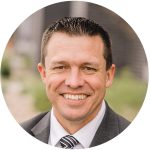No one understands education needs in rural Utah better than parents and teachers living there.
I had the privilege of being a principal in a rural school. The parents of the school had wonderful ideas, including ones I had never dreamed of. One such idea invited skilled experts from multiple industries sharing their knowledge with the students. Leaders from agriculture, meteorology, avalanche control, and many other careers came to our school exciting the children about their future. Parents of the community knew what was best for their students and worked with the local parents, teachers, and me to create this amazing day of learning.
This wasn’t the only kind of experience created by the parents. Field trips, parent-led art, and entrepreneur competitions were the norm here .
I loved how the community supported the students.
But the school had challenges, many of which came from the state board of education or from the district office as one-size-fits-all solutions.
My rural school happened to be in an urban district. District solutions typically focused on the needs of the other schools – the urban schools. My school was expected to implement district plans for problems that we didn’t have.
This was crystal clear during the school shutdowns at the end of 2020. Did schools in Helper really need to close because Salt Lake City had a high number of cases? They did, even though it didn’t make any sense.
Do the newly crowned state reading specialists understand the reading needs of a sheep rancher’s son? Probably not.
But I know who does: the parents and teachers in these communities.
Imagine parents and teachers creating learning that focuses on individuals. Imagine parents and teachers being equipped to change methods, curriculum, and resources without waiting weeks or months for permission from a district compliance officer or the state.
A mother in Duchesne has a son gifted in math – so gifted that by his sophomore year, he had already finished all math courses in the school! He wanted to keep learning. His mother learned that BYU offered a distance learning option. But there was some technology needed to make it happen. She approached the school to try setting this up, but money restraints would not allow for the purchase.
Not one to be defeated, she tried to organize a math club. This was short lived because of money, again.
If this mother had access to an education spending account, she could have organized and funded these activities herself. She could have found a teacher or local professional to help her son continue learning.
Education spending accounts give families the financial means to keep their children learning outside of the bureaucratic red tape in public schools. Teachers can create classes, field trips, experiences, and projects to meet the personal needs of their students.
Imagine parents finding a curriculum that not only teaches the subject, but does it in a way that honors the values of the family. Parents could then find a teacher with similar values to teach the curriculum.
Free market ideals say that these options only occur if there is incentive to do so. Currently there is no financial incentive to create this kind of education. But there could be.
The beauty of rural schools is the sense of community they come with. But that sense of community is threatened if schools are compelled to follow the rules of bureaucrats in Salt Lake City. It is the parents with the teachers who should decide what is taught.
I don’t know the needs of students in Jensen, Utah, or any of the other rural Utah towns. And unless I move there, I probably never will. But the parents of those students and the teachers in the community do. Education spending accounts give parents and teachers the ability to provide the best education for their children. Parents and teachers are then free to solve their problems, not Salt Lake’s.

